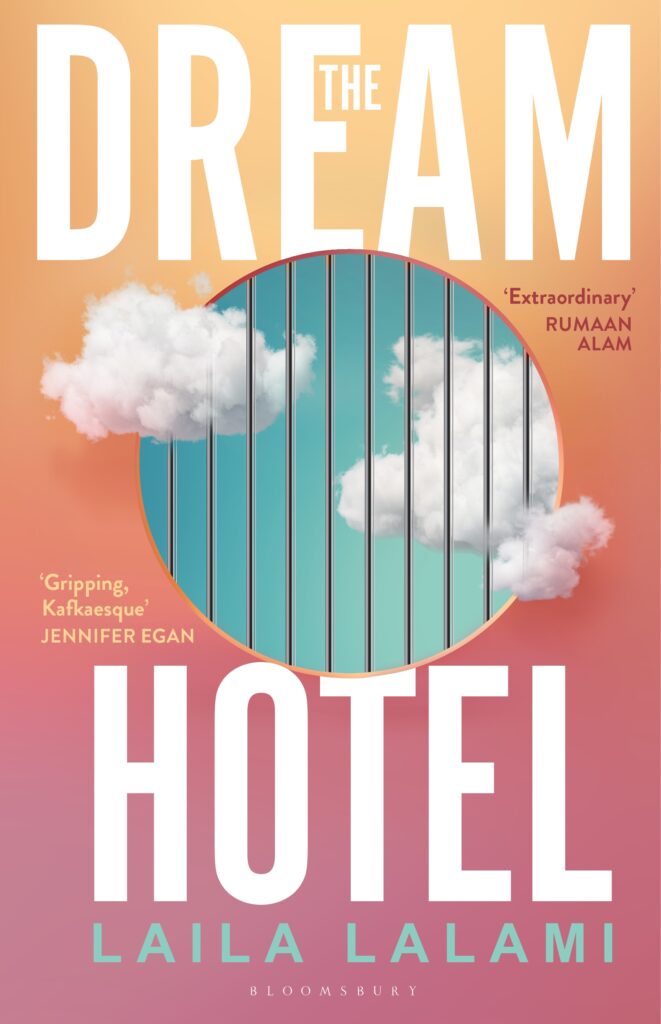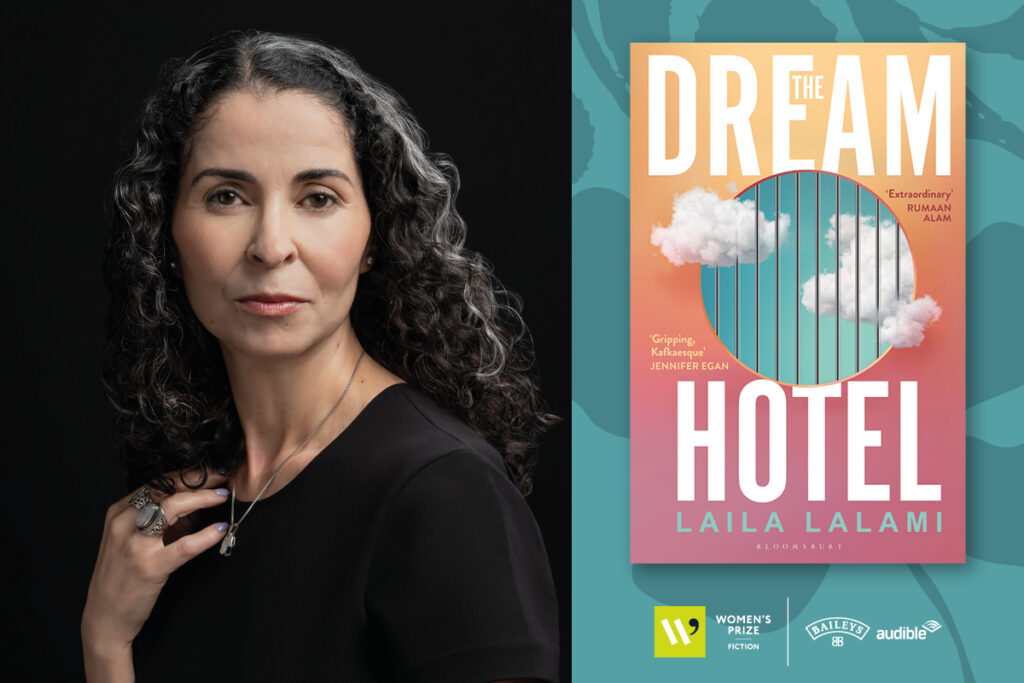Laila Lalami’s speculative novel The Dream Hotel glances into a terrifying future and imagines the consequences of our obsession with algorithms.
Longlisted for the 2025 Women’s Prize for Fiction, judge Amelia Warner says: I love this book that explores the consequences of a society that becomes hyper-reliant on algorithms. It really showed me how technology could be used against us, and it was scary to feel the world created by Laila seems so in reach. I have not stopped thinking about it.’
To find out more about the book we spoke to Laila about her inspirations, writing process and favourite books.
How would you describe your book to a new reader?
The Dream Hotel is set in a near future without privacy. Sara leads what is by all appearances an ordinary life: she works at a local museum, has a husband and twin toddlers, and spends her free time hiking or backpacking. One day, on her return home from a conference abroad, agents from the Risk Assessment Administration pull her aside and inform her that she will soon commit a crime. Using data from her dreams, the RAA’s algorithm has determined that Sara is at imminent risk of harming the person she loves most: her husband. For his safety, she must be kept under observation for twenty-one days.
The agents transfer Sara to a retention center, where she is held with other dreamers, all of them women trying to prove their innocence from different crimes. With every deviation from the strict and ever-shifting rules of the facility, their stay is extended. Months pass and Sara seems no closer to release. Then one day, a new resident arrives, disrupting the order of the facility and leading Sara on a collision course with the very companies that have deprived her of her freedom.
What was the idea that sparked your novel?
One morning in 2014, I picked up my phone to check the time and noticed a Google notification that said, “If you leave right now, you will make it to YogaWorks at 7.28.” I had never told Google what day of the week, what time of day, or even that I went to yoga, but the company had tracked my movements and in time its algorithms had learned that I typically left home every Tuesday around 7.15 am and went to a location that its mapping software said was a yoga studio.
I remember I turned to my husband and said, “Pretty soon the only privacy we will have will be in our dreams.” And then I thought, wait. What if the data collection we see around us penetrates that privacy too? What if someday even dreams are monitored?
Which part of the book did you write first? Was there a moment that clicked a lot of things in place or where you felt the strands of the book started to come together?
Back in 2014, I set the novel in a tech startup company whose device helps users sleep—and in the process also collects their data. I’m an insomniac myself, so I could easily see myself being seduced by such a device. Still, I found it draining to spend all my imaginative energy in a Silicon Valley setting, and after about 50-70 pages I put the manuscript aside to complete another novel I had been working on.
It was only in 2020, when I saw how much the pandemic had increased my dependence on technology, that I returned to the novel. Like others, I sign the terms and conditions of the apps on my phone with barely a glance at the fine print. I know that I am sacrificing privacy and freedom for the sake of speed and convenience. So I couldn’t stop thinking about the idea that dreams are our last islands of freedom. Dreams give us room to imagine in private, without the judgment of others. What if we lost that, too?
I changed the setting from Silicon Valley to Los Angeles and started writing again. Initially, my main character was a man, who gets detained at the airport for his dreams. But after I finished a first draft, I realised that in order to explore surveillance in all its forms my protagonist had to be a woman. Women are subjected to all kinds of surveillance and policing, and I wanted the novel to delve into those as well.
Which part of the book was the most fun to write? Which was the most challenging?
I had great fun imagining a future device that would optimise sleep, and how such a device might be used or misused. The most challenging part of the book was having my protagonist in a confined environment.
What is the best piece of writing advice you have ever received?
Ass in chair. I can’t remember who told me this, but it’s true. There’s no great mystery to writing. You have to put in the hours.
Which female author would you say has impacted your work the most?
Fatema Mernissi, the great Moroccan writer and public intellectual. She was the first woman who made me realise that it was possible to make a life out of one’s words.
What is your favourite book from the Women’s Prize library and why?
Hilary Mantel’s Wolf Hall and Bring Up the Bodies. I love and admire the way she captured a moment and a character from the past, stayed with him, and never gave in to the knowledge she had of his future.
Could you reveal a secret about your creative process?
Whenever I’m stuck in my writing, I sit in another room and read for a couple of hours. The combination of a different setting and a steady flow of words in my ears usually helps me get past whatever isn’t working.









